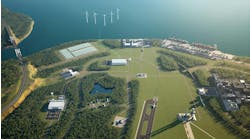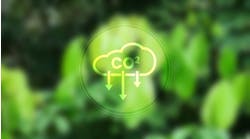Emersons PlantWeb digital plant architecture already has been installed and activated in two of the plants, reportedly resulting in improvements of 12% in productivity and 5% in yield, in addition to overall greater reliability.
Because of the age of some of the facilities and the complexity of the processes, production must be continually monitored to ensure high-quality product. Prior to the PlantWeb installations, NKNH plants were controlled by a locally designed system.
We had to have several very experienced technologists constantly watching over the process, said Damir Gizatullin, chief instrumentation engineer. Since the installation of PlantWeb, we have much better control. Our technologists are able to start up the plant and walk away to perform other duties.
PlantWeb digital plant architecture enables NKNH to run plants with reduced supervision by delivering more complete and intelligent digital automation, using the latest technologies in field devices and easy-to-use operations and maintenance stations. The architecture continuously monitors the processes and the instruments themselves, providing alerts and guidance when and where needed to enable highest efficiency of those running the plant.
Yield at the polyether plant, which had previously experienced quality issues that resulted in a nearly 5 percent rejection rate, has had no rejections or quality issues since installation of PlantWeb. Productivity of the styrene plant has improved 12 percent.
PlantWeb digital plant architecture integrates intelligent digital field devices with modular hosts, including the RS3 distributed control system for the initial project, and the DeltaVdigital automation system for current and future projects. Innovative AMS Suite predictive maintenance software is included. The field-based architecture is connected by information-rich HART or Foundation fieldbus communication protocols, capturing and delivering critical operating information about the instrumentation, process equipment, and the process itself.
Over 95% of all instrumentation was supplied by Emerson and included Micro Motion Coriolis flowmeters, Rosemount pressure and temperature transmitters and Fisher FIELDVUE Digital Valve Controllers (DVCs). The DVCs were fitted to existing control valves.
Productivity improvements have been made possible on the styrene plant due to the improved accuracy of the control; this was brought about through the use of the Emerson field equipment including Micro Motion flowmeters and FIELDVUE DVC digital valve controllers. The technologists now feel comfortable filling at a steady rate, knowing that the reactor will fill faster, that the ratio of raw ingredients will be correct and that the product will meet the required quality level. This has enabled a reduction in the time taken to produce a batch from 14-16 hours to 12-14 hours.
All of the field instrumentation communicates via HART digital communications protocol with Emersons AMS Suite: Intelligent Device Manager software. The AMS Device Manager software is being used by technicians to diagnose device faults within the field equipment, as well as to perform calibration and functional checks.
The intention is to expand the usage by carrying out further training for additional technicians; this will enable cost savings in maintenance by implementing predictive maintenance practices.
Emerson won the long-term preferred automation supplier project by providing a total solution, including an open and standards-based technology, quality of staff, overall size and capability, and local presence.
We are pleased that our global organization and local Russian engineering support, combined with our innovative technology, are already assisting NKNH with significant operational improvements, and we look forward to even more in the upcoming projects, said John Berra, president of Emerson Process Management.
An upgrade to the polypropylene plant is the next planned project, with an expected start-up date of mid-2005. PlantWeb architecture will use Foundation fieldbus digital communications technology for the polypropylene plant upgrade, enabling expanded savings due to the even more robust predictive diagnostics in the Foundation fieldbus environment. Additionally, fewer instrument drawings are required; less space is needed in the control room; less cabling is required; and commissioning takes less time. Additional projects have been identified and are currently going through the NKNH project approvals process.



